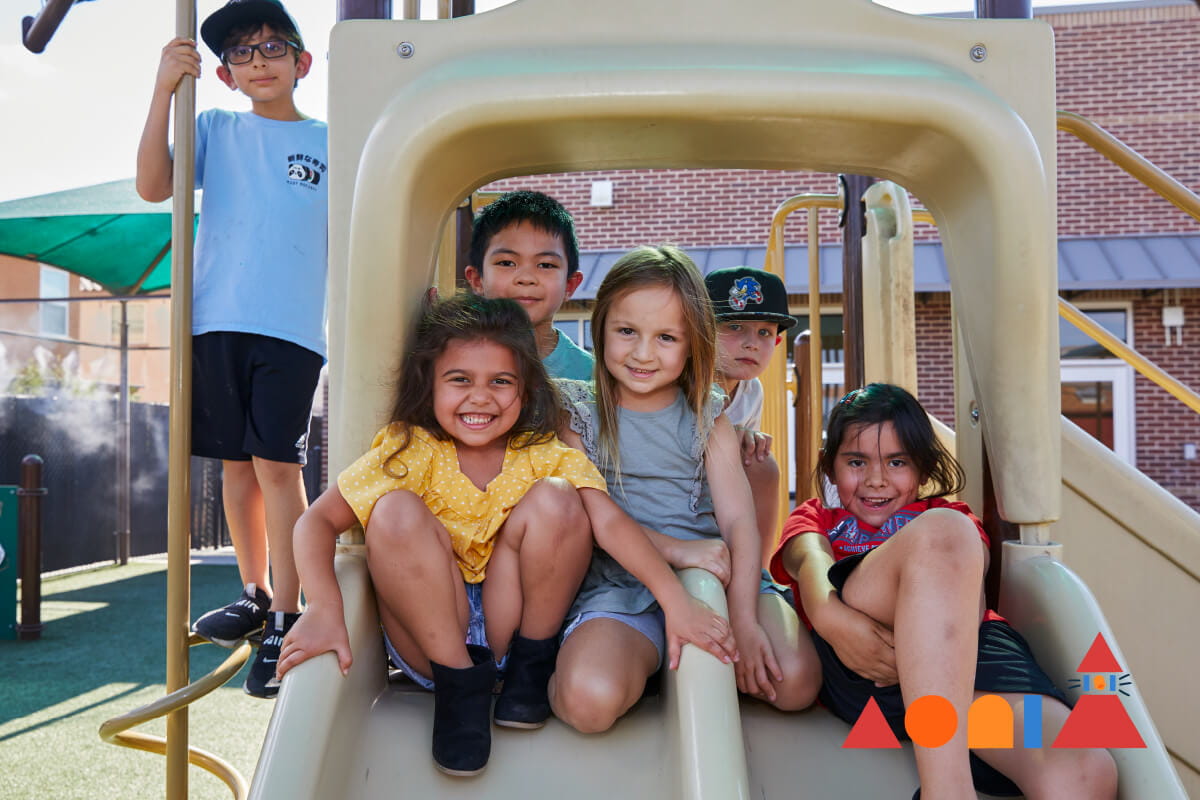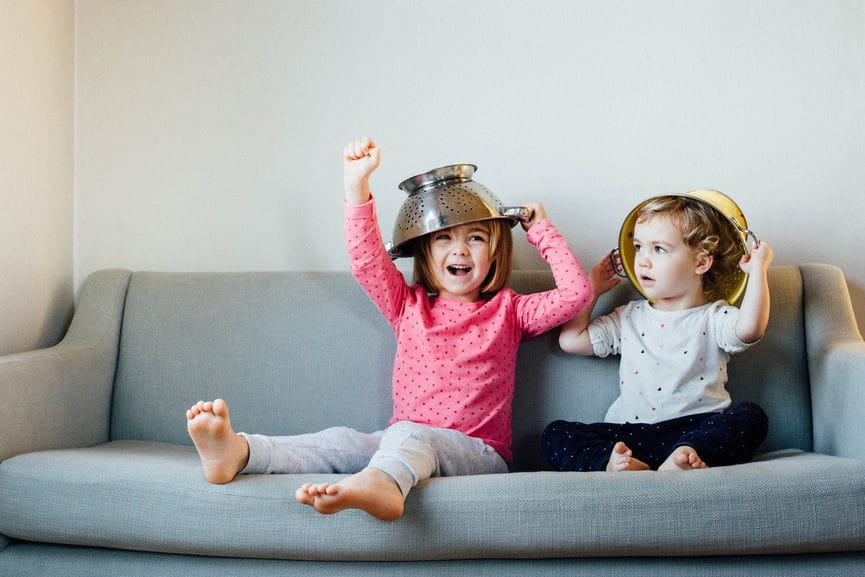Floods, Fires, Storms: Nurturing Children Back to “Normal” When Their World Is Not
7-minute read
Dr. Elanna Yalow, Vice Chair and Senior Advisor, answers your questions about how to talk to your child when they’ve experienced natural disasters—from discussing what happened to identifying and addressing their signs of stress.
Dr. Elanna Yalow, Vice Chair and Senior Advisor, answers your questions about how to talk to your child when they’ve experienced natural disasters—from discussing what happened to identifying and addressing their signs of stress.
“It’s important for families to pay extra attention to how their children are doing after an event like this,” says Dr. Elanna Yalow, Vice Chair and Senior Advisor of KinderCare Learning Companies. “Not all young children will have lingering effects from their experiences, but it’s important to be alert for signs of stress and to be ready to provide extra comfort and support.”
We asked Dr. Yalow a few questions that we hope will help all families with young children understand what their kids might be going through—and help them get through it.
Have more questions for Dr. Yalow?
Write her at eyalowkucomm@kc-education.com.

Q: How do young children experience things like hurricanes, floods, and fires?
Dr. Yalow: The way young children experience natural disasters can be very different from the way adults experience them. Since young children don’t yet have the words to express their emotions—nor the ability to regulate them fully—the impact can be more overwhelming and continue long after the disaster has passed.
It’s important to remember that every child is different, and not all children will respond in the same way. Some children may actually be fascinated to see their street full of water. For others, even if they only saw the floods on television, the water may have looked overwhelming—like something that’s going to sweep over them and pull them under.
My best advice is that you shouldn’t make assumptions about how your child is doing. Instead, tune into their behavior, look for cues, and check in.
Q: What kinds of behaviors might indicate my child is stressed?
Dr. Yalow: Trust your gut. You know your child better than anyone else, but if your children are returning to behaviors they have outgrown, such as worrying excessively, avoiding activities they love, or having poor performance at school, they may need support to help them manage their stress. Talk to your pediatrician or their school counselor for tips on how to support your child’s mental health. For a full list of behavior changes that may be stress-related, and for resources you can use right now, visit the CDC’s website.
I want to emphasize that if you suspect your child is having a serious stress response or your family went through something particularly difficult, seek out child counseling experts, just as you would go to the doctor if they were sick. This doesn’t make you a less able parent; it makes you a caring parent.
Q: What should I talk to my three- or four-year-old about natural disasters? I honestly don’t know what to say!
Dr. Yalow: This is a wonderful chance for you to be honest about what happened, to validate what your child experienced—and also to be a model of reassurance and calm. So, you might say something like, “Yes, it was scary, but we’re safe now.”
One thing you want to be mindful of is having too many high-stress conversations about your losses or challenges within earshot of young children. They are very sensitive to the stress of the adults around them, so if they see you upset, that can be unsettling to them.
You can also make things positive by telling the good stories about people helping people, which can be wonderfully reassuring to children. So, again acknowledging your child’s experience, you might say things like, “I was nervous, too, , but wasn’t it so wonderful that our neighbor came over and helped us? We’re so lucky to live in a community of people who are so kind and are always here for us.”
That’s a powerful and positive narrative for young children:— that even when things are difficult, there are people who will help and support you.
Q: What if my child doesn’t yet “talk” about feelings?
Dr. Yalow: That’s very normal, and there are still many non-verbal signs of stress you can look for. Watching your child play can be especially valuable in detecting these signs because play provides a free and open environment for children to express what they are feeling and thinking.
After a natural disaster, provide your child extra opportunities for free play by giving them things like dress-up clothes, paints, crayons, stuffed animals—anything that allows them to express themselves. Even giving them more time to play with friends or to be outside is powerful, because the interactions, physicality, and games are all part of how young children can express what’s going on inside.
Play also gives you a chance to have conversations that give you insights into your child’s feelings without directly questioning them about something they may be unable to share or that they feel uncomfortable discussing. So, for example, while they’re coloring, you can ask curious, open-ended questions such as, “Tell me about your picture! What is this? Why did you draw that?” By taking the time to be together, to connect, and to talk with your child in an intentional, engaged way, you’re giving them a lot of support and outlets to express their feelings. You’re saying: You’re important, and your experiences matter to me.
Q: We lost our house in a natural disaster. How can we provide our child comfort during this tough time of change for our family?
Dr. Yalow: Routines are important for young children. Children like predictability—so the obvious guidance is to reestablish routines and get things back to normal as quickly as possible. But in an overwhelming situation like this, it may take a long time before the old “normal” can be reestablished.
Still, even little familiar routines can provide real comfort. Although their whole world may not be put together the way it was, you can make sure they have a copy of their favorite book or favorite blanket. If dinner has always been a special time for your family, ensure that you make dinner special in your temporary home as well.
Children can also experience a general sense of loss from events like this. Put simply, they just know that things aren’t the same as they were before. Their old routine, how it felt, and what was usual—the predictability—is gone. One thing you can do to help your child regain a sense of security is to help them shape the new “normal.” For example, if you’re moving to a new place, ask, “How should we set this up? Which room do you want? Where should we put your bed and stuffed animals?”
And this may seem obvious, but young children thrive on physical comfort. So, open up those arms and give your children extra hugs, cuddles, kisses, and lap time. That kind of closeness lets children know that there is someone there to take care of them and love them. It’s powerful. And it may also give you the comfort you need during tough times.
Q: Do you have any tips on how children can manage their depression or anxieties?
Dr. Yalow: Supporting children’s mental health early will help them increase their resilience and confidence. Make the most out of this unsettling time by helping your children learn to manage stress in healthy ways, while also supporting your own mental health:
- Be kind to yourself. You can’t pour from an empty cup, so prioritize self-care. It isn’t selfish; it will help you be your best self for your loved ones who need you. Plus, it sets a great example for your children! And in those moments when you don’t feel like you have it all together, don’t put on a good face—they will see right through it anyway.! Help them by naming and validating your emotions and modeling a coping strategy.
- Focus on family resiliency by building some fun into your routine—Saturday movie night and Sunday morning pancakes are great ways to connect with each other. Have everyone look for and share 3 good things about their day during a meal or before bed to practice gratitude. And then, take a deep breath to help ground you. To help younger kids breathe deeply, hold up two fingers and ask them to smell the flower (one finger) and blow out the candle (the second finger.)
- Ask for help when you need it. If your children are returning to behaviors they have outgrown, worrying excessively, avoiding activities they love, or have poor performance at school, they may need support to help them manage their stress. Talk to your pediatrician or their school counselor for additional tips on how to support your child’s mental health.
- Create special moments—find ways to bring joy into your family’s life after experiencing a disaster. Family rituals and celebrations give children (and adults) something to look forward to. Half the fun is in the anticipation, planning, and preparation for the special moment. This could mean having a special meal once a month or celebrating a particular holiday.




